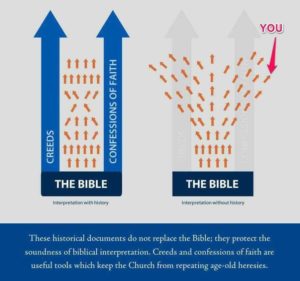Pastor Kevin DeYoung, University Reformed Church, East Lansing, Michigan
Jesus’ View of Scripture:
Jesus held Scripture in the highest possible esteem. He knew his Bible intimately and loved it deeply. He often spoke with language of Scripture. He easily alluded to Scripture. And in his moments of greatest trial and weakness—like being tempted by the devil or being killed on a cross—he quoted Scripture.
His mission was to fulfill Scripture, and his teaching always upheld Scripture.
He never disrespected, never disregarded, never disagreed with a single text of Scripture.
He affirmed every bit of law, prophecy, narrative, and poetry. He shuddered to think of anyone anywhere violating, ignoring, or rejecting Scripture.
Jesus believed in the inspiration of Scripture, down to the sentences, to the phrases, to the words, to the smallest letter, to the tiniest mark.
He accepted the chronology, the miracles, and the authorial ascriptions as giving the straightforward facts of history.
He believed in keeping the spirit of the law without ever minimizing the letter of the law. He affirmed the human authorship of Scripture while at the same time bearing witness to the ultimate divine authorship of the Scriptures.
He treated the Bible as a necessary word, a sufficient word, a clear word, and the final word.
It was never acceptable in his mind to contradict Scripture or stand above Scripture.
He believed the Bible was all true, all edifying, all important, and all about him. He believed absolutely that the Bible was from God and was absolutely free from error. What Scripture says God says, and what God said was recorded infallibly in Scripture.
Jesus submitted his will to the Scriptures, committed his brain to study the Scriptures, and humbled his heart to obey the Scriptures.
In summary, it is impossible to revere the Scriptures more deeply or affirm them more completely than Jesus did. The Lord Jesus, God’s Son and our Savior, believed his Bible was the word of God down to the tiniest speck and that nothing in all those specks and in all those books in his Bible could ever be broken.
(1) How to Think and Feel About the Word of God – Psalm 119:1-119:176
How to Think and Feel About the Word of God from URC Web on Vimeo.
(2) Something More Sure – 2 Peter 1:16-1:21
Something More Sure from URC Web on Vimeo.

 Article: John Gill, the rule of faith and baptist catholicity by David Rathel (original source
Article: John Gill, the rule of faith and baptist catholicity by David Rathel (original source  Here are some words from Dr. James White. This is an edited excerpt from a longer discussion on facebook defending the idea of having dialogue, even with those opposed to the gospel:
Here are some words from Dr. James White. This is an edited excerpt from a longer discussion on facebook defending the idea of having dialogue, even with those opposed to the gospel: